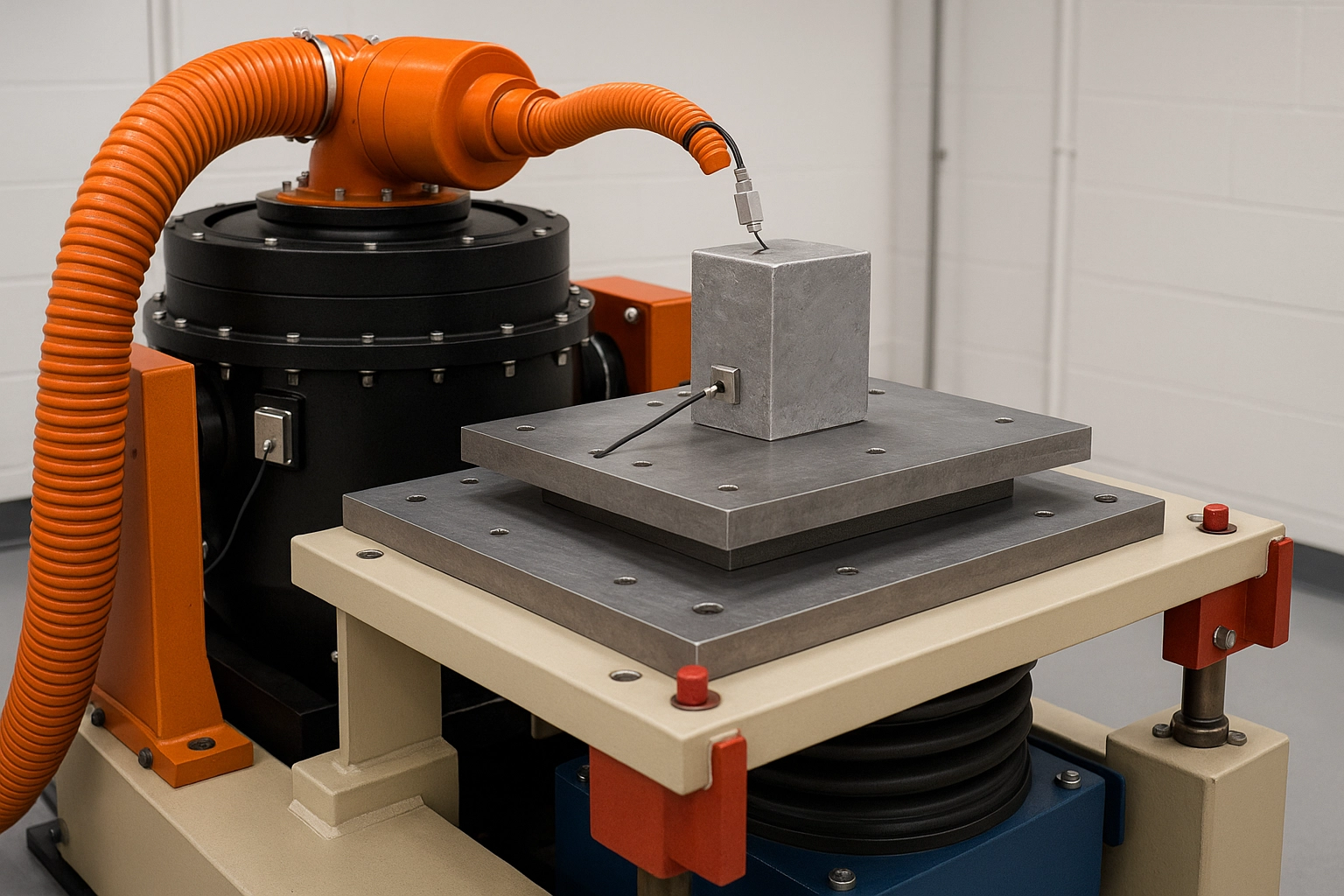IEC 61373 Railway & Automotive Shock and Vibration Testing
The IEC (International Electrotechnical Commission) standard 61373 provides a robust framework for the testing of railway and automotive components subjected to shock and vibration. This service is essential for ensuring that products meet stringent safety, reliability, and performance criteria in challenging environments.
The IEC 61373 standard addresses the unique challenges faced by railway and automotive industries when it comes to mechanical stress and dynamic loading. It covers a range of tests designed to simulate real-world conditions encountered during transportation and use. Compliance with this standard is critical for manufacturers, as it ensures that their products can withstand the rigors of travel without failure.
The testing protocol outlined in IEC 61373 involves subjecting specimens to controlled shock and vibration environments using specialized equipment. This includes shaker tables and drop towers, which apply precise levels of force and frequency to simulate road conditions or railway track vibrations. The primary goal is to evaluate how well the components perform under these stresses.
In practice, this testing process typically involves several stages:
- Initial setup: Specimens are prepared according to prescribed standards ensuring they accurately represent the actual product in use.
- Environmental simulation: Using advanced shakers and other hardware, we replicate both shock and vibration conditions as closely as possible to real-world scenarios.
- Data collection & analysis: High-precision instruments measure various parameters including acceleration, displacement, and force during testing. These data points form the basis of our comprehensive reports.
The resulting reports provide detailed insights into the performance characteristics of each component tested, highlighting any weaknesses or areas requiring improvement. This information is invaluable for quality managers looking to enhance product robustness as well as compliance officers ensuring adherence to regulatory requirements.
Compliance with IEC 61373 is mandatory in many jurisdictions due to its recognition by national standards bodies worldwide. Failure to meet these stringent criteria could lead to recalls, safety issues, and even legal consequences. By offering this testing service, we help our clients avoid such risks while also gaining a competitive edge through superior product design.
Scope and Methodology
| Parameter | Description |
|---|---|
| Shock Testing | Involves applying controlled impacts to the specimen using a drop tower. The impact force and velocity are meticulously measured and recorded. |
| Vibration Testing | Specimens are subjected to continuous oscillatory motion simulating vehicle dynamics or railway track conditions. Frequency ranges vary depending on specific application requirements. |
| Data Acquisition | Sensors capture critical metrics like acceleration, displacement, and force during testing. This data is analyzed using advanced software to generate detailed reports. |
The methodology employed follows strict international guidelines as defined by IEC 61373. Our laboratory uses state-of-the-art equipment calibrated according to ISO standards to ensure accuracy and reliability of results. Each test run is documented thoroughly, allowing for thorough review and validation.
Benefits
Adhering to IEC 61373 ensures that your products meet the highest safety and quality standards set by industry leaders. Here are some key benefits:
- Enhanced Reliability: Products tested under these conditions exhibit improved durability, which translates into longer operational life.
- Better Safety: By identifying potential failure points early in the development cycle, you can implement corrective measures before they become critical issues.
- Regulatory Compliance: Meeting this standard helps avoid costly recalls and penalties associated with non-compliance.
- Innovation Support: Advanced testing facilitates innovation by providing valuable feedback on product performance under extreme conditions.
Our comprehensive approach ensures that every aspect of your product undergoes rigorous scrutiny, resulting in a final product that not only meets but exceeds expectations set forth by regulatory bodies and customers alike.
Industry Applications
- Railway Systems: Ensures that components like bogies, couplers, and signaling systems can withstand harsh track conditions without failure.
- Automotive Vehicles: Validates the resilience of parts such as brakes, suspension systems, and body panels against road shocks and vibrations.
- Fleet Management: Provides critical data to fleet operators about vehicle durability under various operating conditions.
The tests performed are essential for manufacturers who need assurance that their products will perform reliably across diverse operational environments. From prototype evaluation to final production validation, our IEC 61373 testing service covers all stages of product development with precision and reliability.





